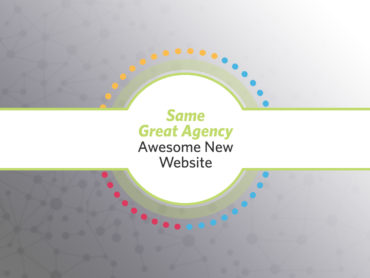Making the Most of Your Panel Appearance
Four Steps to Make the Most of Your Next Panel Appearance
So, you’ve been convinced to speak on a panel. The obligatory advertisement has been secured, perhaps members of your company have confirmed their attendance, and there’s just one last, pesky detail to figure out.
What do you say?
It can often seem difficult to develop an idea of what to say on panels. The topics are generally broad, and you might be among four or five other subject experts who are all competing for valuable mic time. So how do you make the most of your panel appearance and ensure that you can make an impression on everyone in attendance that carries on long after they leave the room.
Have a Key Message
With so many panelists and the typical early morning start time, it’s vital to have a unifying theme to your remarks to help combat the pre-coffee fogginess and short attention spans of many of those in attendance. Instead of approaching the panel in a scattershot, responsive nature, think deeply about why you are doing the panel (This should be done well in advance not on the back of a hotel napkin as you sit waiting for your turn to speak). If you are there to establish awareness of your business, develop one key message that you want everyone to leave the conference knowing about your business. If you are looking at the panel as a personal branding exercise, determine how you want to be perceived by those in attendance and develop your main message around that. When people see your name or suddenly have a need for your business’ services days or months later, you want them to easily remember your name and company.
Apply Useful Experiences to Illustrate Key Message
Although a main message is important, repeating your main message verbatim over and over on your panel will make your memorable in another, less than complimentary, sort of way. This leads to the next point. Nothing illustrates expertise quite like evidence. I can say I’m an expert on writing blogs about panel participation but without any blogs to show for it, I am just blowing hot air. Generally, your audience will be comprised of fellow industry experts, so if your key message establishes that you’re an expert on something, be prepared to back it up with facts or evidence. For example, if your unifying key message is – “Well-executed panel participation is a useful way to network with your colleagues and help establish thought leadership on a given topic” – then be prepared to share an anecdote or story about how a client was able to either secure new business or create opportunities out of a well-executed panel participation. Think of these as your supporting message, you are providing valuable context to reinforce your main message and these real-life experiences tie the message to something tangible which will help the audience make connections to their experiences.
Use Humor
Obviously pick your spots here, some panel topics don’t lend themselves to humor and a joke might land flat. But if you have the chance to use humor, it goes a long way towards making yourself more memorable to the audience. Few people remember the monotone, boring panelist; many more people will remember you and want to work with you if they get a good idea of your personality.
Provide Color on Upcoming Plans
The last piece is something that I have seen far too many panelists fail to do. Although it is important to speak about past experiences, providing information about what you have in store in the future, establishes a reason for people to continue to pay attention to you. If your company has an exciting project or announcement coming up, this is a great chance to provide some information or tease it a bit. In addition to making the panel more relevant over the long run, this will also offer a call to action for people in attendance to follow up with you.
Panels don’t need to be scary things. With a clear message, interesting experiences, the situationally-aware use of humor or personality, and a hint at what’s in store for the future, you can ensure that these opportunities are valuable opportunities to spread the news about your company and the great work you are doing.
Need help preparing for your next panel? Reach out to me at djohnson@dev.randjsc.com to learn more about how R&J can make a difference for your next panel.



















































































